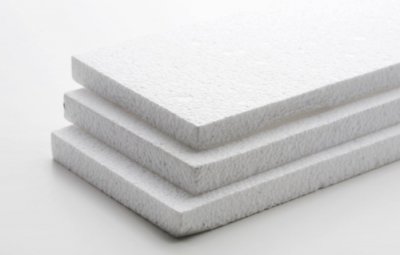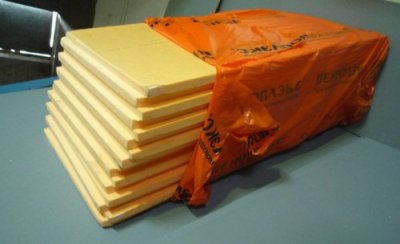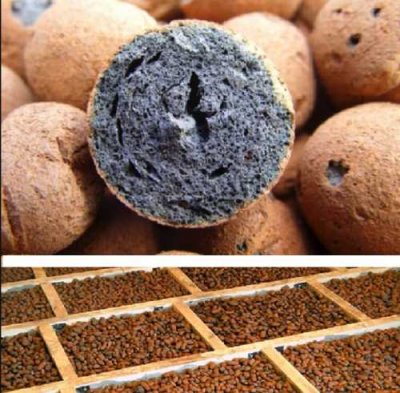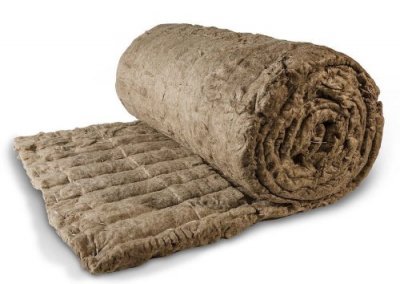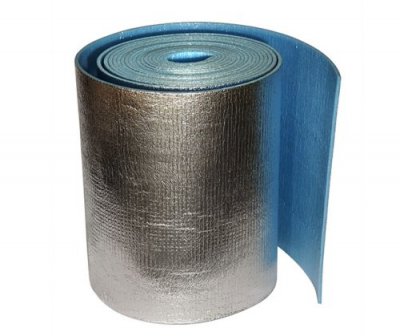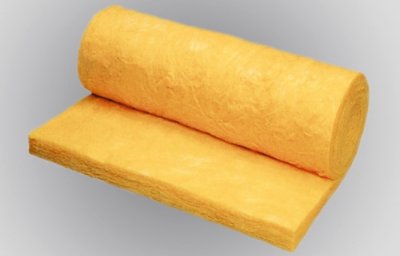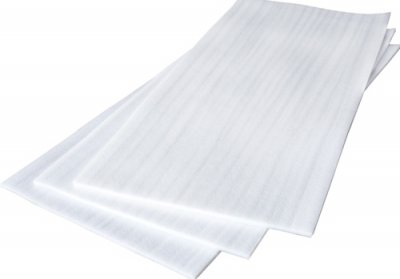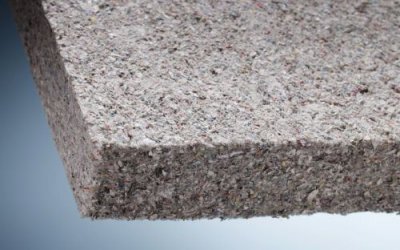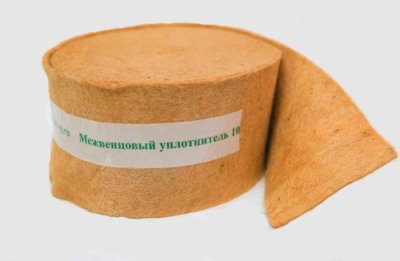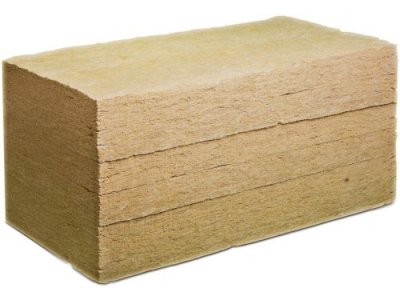Place |
Name |
Characteristic in the rating |
| 1 | stone wool | Universal heat insulator |
| 2 | Jute | The best insulation for interventional joints |
| 3 | Ecowool | Safety and environmental friendliness |
| 4 | Izolon | State of the art thermal insulation |
| 5 | glass wool | Elasticity and strength |
| 6 | Penofol | The thinnest internal insulation |
| 7 | slag wool | Availability and resistance to biodestruction |
| 8 | Expanded clay | Heat insulator for concrete bases |
| 9 | Penoplex | Maximum efficiency |
| 10 | Styrofoam | Availability and ease |
In order to create an ideal microclimate for the life of a modern person in a wooden house, it is necessary to correctly perform thermal insulation. Depending on the design of the ceiling, walls and floor, heaters with a certain set of technical parameters are selected. Experts advise paying attention to such qualities of a heat insulator as:
- thermal conductivity coefficient (the lower, the better);
- weight (the lower the better);
- the possibility of further finishing;
- combustibility;
- environmental friendliness;
- vapor permeability;
- environmental friendliness;
- durability;
- price.
Given these important properties of the material, we have selected the 10 best heaters for a wooden house.
TOP 10 best heaters for a wooden house
10 Styrofoam
Average price: 150 rub. (1 sqm)
Rating (2022): 4.5
There is a place in a wooden house as a heater and popular foam.For example, the availability and lightness of the material makes it one of the best thermal insulators for ceilings from the inside. Styrofoam is easy to install, it is cut with a clerical knife, and fixed with glue, nails, screws. The slabs are laid end-to-end, and the cracks and voids are filled with construction foam. The material has excellent vapor and water repellency. Attracts homeowners and such a valuable property of polystyrene as environmental friendliness. A wide variety of finish coatings can be applied to thermal insulation.
The main disadvantage of polystyrene is combustibility. Therefore, it is not suitable for thermal insulation of a boiler room or chimneys. Unfortunately, not only people like the insulation, but also rodents. Therefore, it will be useful to protect the foam with a fine metal mesh.
9 Penoplex
Average price: 505 rub. (1 sqm)
Rating (2022): 4.6
Penoplex, like polystyrene, is made from expanded polystyrene, but manufacturing technologies, like properties, are seriously different. Insulation of a wooden house with foam plastic is the most effective option. Even in the northern regions of the country, this material is used as a heat insulator. Experts attribute high strength, the ability to apply plaster and paint to the advantages of a synthetic heat insulator. Thanks to this, the horizon for finishing work is expanding. The undoubted advantage of penoplex will be low weight, ease of installation, as well as a long service life of insulation.
But specialists have an ambiguous attitude to low vapor permeability. The breathing ability of a wooden house is deteriorating, so you will have to take care of the ventilation system. The disadvantages include the high price and combustibility of the material (class G4).
8 Expanded clay
Average price: 4 rub. (1l)
Rating (2022): 4.6
When concrete bases (floor, ceiling) are used in a wooden house, it is possible to cheaply and effectively perform thermal insulation using expanded clay. This material is a small pebbles of a certain size (10-20 mm). Previously, a crate is made on a concrete base (in the case of a plank floor), a hydro- or vapor barrier is laid, and then expanded clay with a thickness of at least 20 mm is scattered in an even layer. Calculating the required amount of heat insulator is quite simple. For insulation 1 sq. m layer of 10 mm will require 16 liters of expanded clay. Also, the heat insulator can be added directly to the concrete when installing the screed.
Builders call expanded clay the best insulation for concrete foundations. But you should work with the material carefully to prevent damage to the granules. Otherwise, the thermal conductivity coefficient will increase significantly.
7 slag wool
Average price: 50 rub. (1 sqm)
Rating (2022): 4.6
Quite a long time ago in Russia they mastered the production of a cheap heat insulator called slag wool. Blast-furnace slag became the main raw material for its manufacture. Given the development of metallurgical production in our country, there is enough waste to produce affordable insulation. Slag wool can be found on sale both in slabs and rolls, and with a foil coating. The material is flexible, which allows high-quality insulation of curved surfaces. The heat insulator retains heat well in a wooden house, does not let in noise from the street, repels rodents and insects.
Users note several significant drawbacks in slag wool.It absorbs moisture, and when wet, an acidic environment is formed that can destroy metal elements. Workers must wear protective equipment as skin contact causes irritation.
6 Penofol
Average price: 21 rub. (1 sqm)
Rating (2022): 4.7
Penofol is a reflective insulation based on polyethylene foam. Thanks to the foil coating, it exhibits low thermal conductivity even at low thicknesses. There are three varieties: penofol-A has one layer of aluminum foil, penofol-B has a double-sided coating, and penofol-C is protected by foil on one side and has a self-adhesive surface on the other. The material is used both outside and inside a wooden house. With it, you can insulate the ceiling, walls and floor. The presence of a self-adhesive layer simplifies the installation of the heat insulator, and when working with it, special clothing or personal protective equipment is not required.
Experts recommend using penofol in the complex thermal insulation of the house. For example, mount foam plastic to a wooden beam, and attach a thin (3 mm) layer of foam foam to it. The disadvantage of the heat insulator is the weak effect of the use of penofol as the only insulation.
5 glass wool
Average price: 63 rubles (1 sq. m)
Rating (2022): 4.7
Glass wool is an elastic and durable insulation. This material has been used in housing construction for a long time, today, thanks to new technologies, it has received a second life. The basis of the insulation is molten glass, to which dolomite flour, borax, limestone and other components are added. Polymer binders are used to connect individual fibers.Due to the largest length of glass fibers (15...50 mm), the material outperforms its competitors in such indicators as elasticity and resilience. The advantages of glass wool experts include vapor permeability, low thermal conductivity, inertness to chemical compounds. Insulation is supplied to the distribution network in the form of plates, mats and rolls. Individual modifications are covered with a layer of foil or fiberglass.
The main disadvantage of glass wool is the danger of sharp particles for the human respiratory system, eyes and skin. Therefore, all work must be carried out with the use of personal protective equipment.
4 Izolon
Average price: 65 rub. (1 sqm)
Rating (2022): 4.8
The heat insulator Izolon has universal properties. Experts call it a heater of the 21st century. The effectiveness of the material is complemented by high elasticity and durability. Izolon is a foamed polyethylene foam, which is commercially available in the form of rolls, plates and tapes. Some modifications have a foil coating, as well as a self-adhesive layer. The strengths of the heat insulator include light weight, low thermal conductivity, ease of installation. Of particular note is the zero water absorption of the material. Thanks to this property, the material retains all its qualities during operation, resists aggressive environmental influences.
You can mount Izolon both outside the wooden house and inside. The insulation does not emit harmful substances even when heated to 100°C. Insects and mice do not start in it, fungi and mold do not appear.
3 Ecowool
Average price: 350 rub. (1 sqm)
Rating (2022): 4.8
Ecowool is considered one of the safest modern heaters.In the production of this material, waste from paper mills is used. About 80% of the heat insulator is occupied by crushed natural cellulose. To make the material resistant to biodestruction, antiseptics and flame retardants are added. Ecowool does not change its thermal insulation qualities with fluctuations in humidity. Therefore, condensation will never appear in a wooden house. Protecting the interior from noise and cold, the insulation does not emit harmful compounds. This property makes it the best heat insulator for interior work.
The easiest way to work with hypoallergenic plates, although ecowool is also sold in bags. But it is necessary to apply loose material using special equipment. And this seriously increases the estimate. Some manage to apply ecowool manually, spending a lot of effort on tamping the layers.
2 Jute
Average price: 7 rub. (1m)
Rating (2022): 4.9
Wooden houses made of timber have interventional joints. It is they who become the weak point in the thermal insulation of the wall. Therefore, before proceeding with the decoration outside or inside the house, it is necessary to caulk the joints. This is best done at the stage of erecting a log box. Then, after laying each crown, a jute tape is rolled on top and fixed with staples. The next crown is laid on it, the logs are tightly pressed against the heat insulator along the entire length. In the process of drying the wood, new cracks can form, so it is important to choose the right thickness of the insulation.
When laying ribbon jute, it is important not to break the fibers, the material does not differ in plasticity. The result of improper installation may be the formation of voids between the timber.Otherwise, the imported heat insulator is superior to linen tow or traditional moss and becomes the best interventional insulation.
1 stone wool
Average price: 313 rub. (1 sqm)
Rating (2022): 4.9
Stone wool becomes an excellent universal heat insulator for a wooden house. It is made by melting rocks such as basalt. Water-repellent components are added to stone fibers, as well as urea and formaldehyde resins. The material is most often used for thermal insulation of walls from the outside, although internal insulation is also possible with stone wool. Experts note such strengths of the heat insulator as incombustibility (600 ° C), high vapor permeability and low thermal conductivity. Manufacturers compress stone fibers into rectangular slabs or mats. Some modifications are additionally equipped with a fiberglass or foil coating.
Builders call stone wool the best insulation for its density and rigidity, the material retains its original shape throughout its entire service life. The heat insulator is not damaged by microorganisms, and during installation it does not cause irritation among workers.
